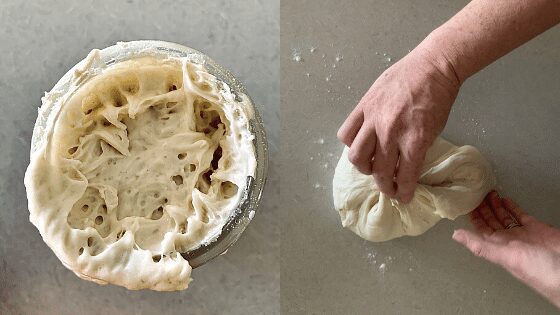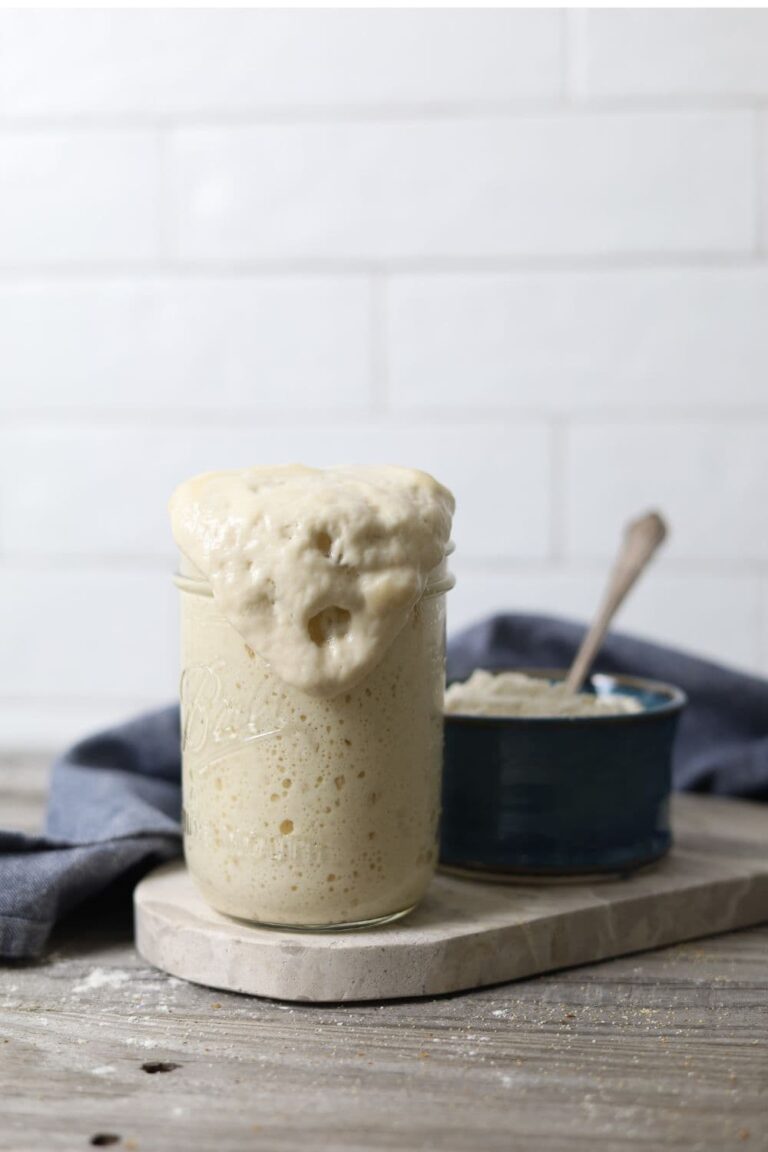Is It Better To Make A Sourdough Starter or Buy One?
This post may contain affiliate links.
I often get asked is it really better to make your own sourdough starter - or should you just buy one? Perhaps you know someone who has a mature one that will share with you?
In this article I will explore the pros and cons of making your own sourdough starter vs buying one (or getting one from a friend).
We are all walking a unique journey - and what is right for one person, may not be right for someone else.
So remember that while I can provide pros and cons, ultimately it's up to you to decide what is best for your lifestyle and sourdough journey.
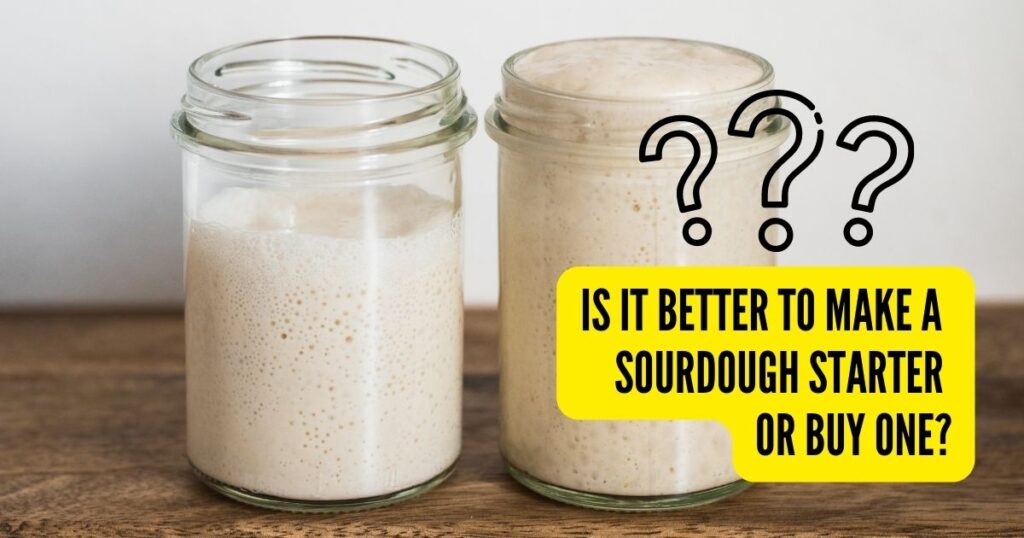
Making Your Own Sourdough Starter
Essentially making a sourdough starter is not an overly difficult process, but it does require a commitment of time and patience, as well as some dedicated equipment.
Sometimes there are factors which mean making sourdough starter could be difficult. Perhaps you're working long hours or go out of town regularly. Maybe you've got small children or just had a baby. Or maybe you just know that you'll forget to feed it more often than not.
Sometimes, people are anxious over creating a sourdough starter from scratch. They are worried about not knowing if the starter goes bad or just not being able to feed it regularly enough. If you growing a sourdough starter is causing you anxiety, then purchasing one might be a better option.
If you’re up for the challenge of creating something truly unique in your kitchen and have time to commit to it, then making a sourdough starter from scratch is for you.
While it’s not an overly difficult process, it does require measuring and consistency. And oh so much patience!
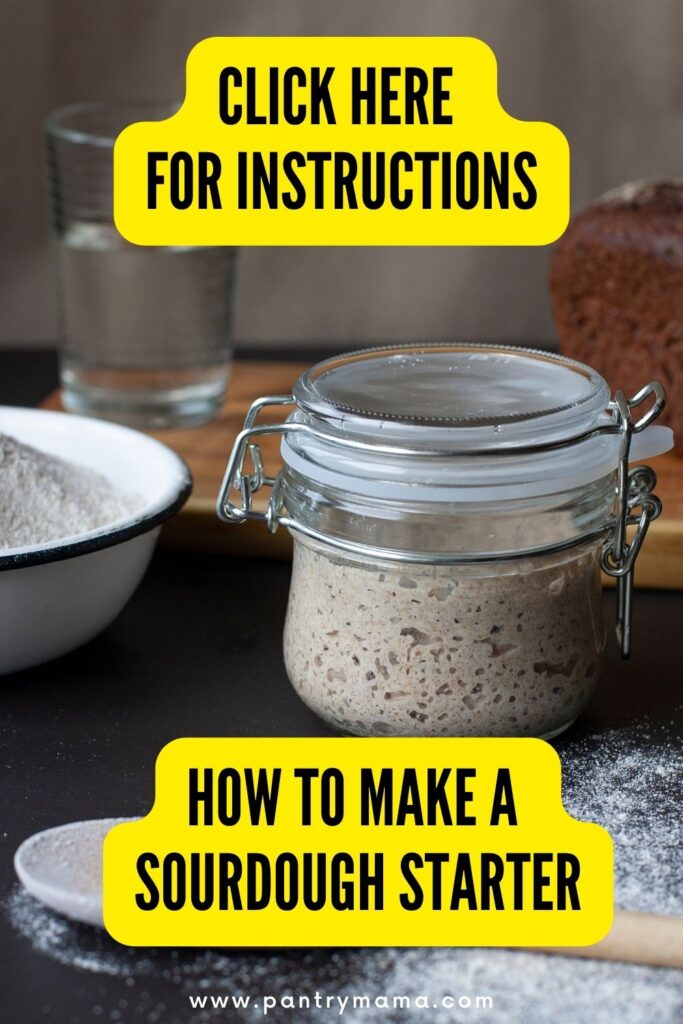
Things to consider when deciding whether to make a starter from scratch or buy a starter:
- Do you have time to discard and feed your starter twice a day (around 12 hours apart) everyday for a few months?
- Do you have access to a quality source of flour?
- Do you have a clean water supply or are you willing to buy bottled water?
- Will you have the patience to wait a few months while your sourdough starter develops into a mature starter?
You will be rewarded for your patience - rewarded with a bubbly, happy starter that you created yourself.
In fact, did you know that some of the yeast in a sourdough starter comes from your own hands? You can read more about this here.
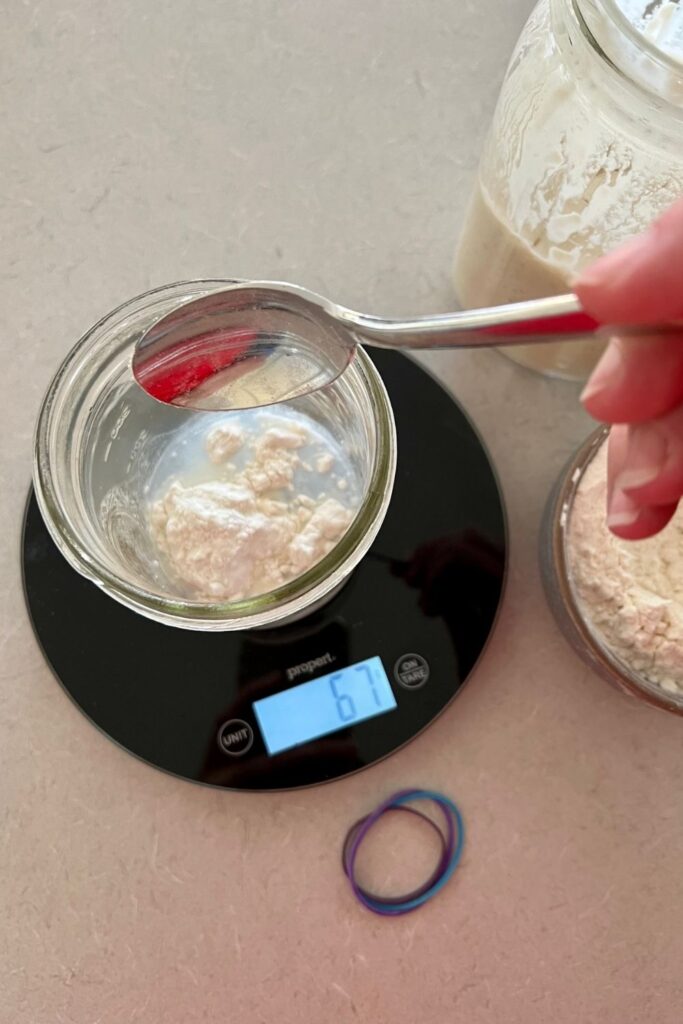
Benefits of Making Your Own Sourdough Starter
- Personal satisfaction of creating a unique starter from scratch
- Can control the flavor of your own starter
- You know the history and where it’s come from
- Can pick the flour you make it from
- Can use the discard to make yummy baked goods
- Your starter could become a family heirloom in years to come
Negatives of Making Your Own Sourdough Starter
- Can be time consuming
- It can fail at any stage of the process
- Can take a long time before it’s ready to make sourdough
- Requires a lot of patience and troubleshooting
- Can be messy and a little smelly.
Should You Buy A Sourdough Starter or Get One For Free?
If you're not ready to make your own sourdough starter, you could purchase one or even get one from a friend.
When looking at purchasing or acquiring a mature starter, you need to consider whether the starter you'll be getting will be dehydrated or in liquid form.
There are still pros and cons to consider:
Benefits of Buying Sourdough Starter (or Getting It "Ready Made")
- You can make sourdough straight away in most cases (or at least within a few days)
- Skip lengthy establishment period and time consuming feeding
- Don’t need lots of flour to establish starter (but you may need to rehydrate and feed it for a few days)
- More likely to have a strong starter from the beginning (as long as it's from a reputable source)
Negatives of Buying Sourdough Starter (or Getting It "Ready Made")
- You don’t really know the history of the starter (especially if you buy it - it could be from anywhere)
- If it’s dehydrated, you still need to rehydrate and feed it back to an active state (this shouldn’t take long if it’s mature, but if you’ve been sold a dud it can take forever).
- It won't necessarily guarantee you a certain flavor profile, since it will take on the yeast and microbes of it's environment and the flour you feed it. You can read more about this here.
Where Can You Buy A Starter From?
If you do want to go down the route of purchasing a sourdough starter, where should you even start looking?
My best advice is only buy from reputable sources - these days, anyone can make up a story online and sell you a starter.
There are many claims of 150 year old starter - and the truth is you really will never know if it’s legitimate or not. It could be someone with a 2 week old starter just making up an elaborate story.
If you want to purchase a starter, I would recommend:
- Asking at your local bakery (this is a good idea because the starter will be liquid so you don’t have to hydrate it, and it will be a local starter).
- Purchase from a reputable baking company, rather than a random Etsy seller. You’re more likely to get a quality product if you choose a well known company.
- I would recommend using this Breadtopia Starter if you do want to purchase a starter. This starter is from a reliable company with good reviews.
Where Can You Get A Sourdough Starter For Free?
If you don't want to spend money on a starter, there are lots of ways you could acquire a mature sourdough starter for free.
- Carl’s Friends - this page will mail you a dehydrated sourdough starter for free. It's a well known source and many people have done this.
- Ask on your local “Buy Nothing Facebook Page” - you’d be surprised at who will share their starter with you - and if they’re local it should be in liquid form. Just remember to ask how old the starter is and how they maintain it so you know what you're dealing with.
- Ask in our Facebook Group - many members will gladly mail you some dehydrated starter. You can use these instructions to rehydrate the starter.
- Ask a friend that you know makes sourdough to share their starter with you.
Most people will share their starter with you. There’s a bit of an unwritten rule in sourdough baking that you don’t charge anyone money for sourdough starter (unless you’re a bakery of course). It’s part of sharing the sourdough love!
Sometimes people will want to swap something for it. I’ve heard of people swapping sourdough starter for a poem, a picture, a postcard or even some cuttings from their garden! I love this idea!
Do you need specialised equipment to make a sourdough starter?
You do need a few things to ensure your sourdough starter is successful, whether you purchase one or start it from scratch.
At a bare minimum, I recommend the following:
- Clean jar (can be a coffee or pasta sauce jar)
- Digital scales
- Clean knife or chopstick for stirring (metal is fine)
If you want to purchase some equipment to make your sourdough starter life easier, I would recommend the following (click on the words and it will take you to the Amazon link:
- Sourdough Starter Jar - this one features thermometer and small rubber spatula for stirring
- Digital Baker's Scale - weighs down to 1g increments
- Small rubber spatula - set of 4 mini spatulas in difference sizes for stirring and cleaning your jar
Whether you purchase a sourdough starter or make one from scratch, you'll be keeping it in a jar and weighing the ingredients, so the equipment above will be suitable no matter which route you wish to take.
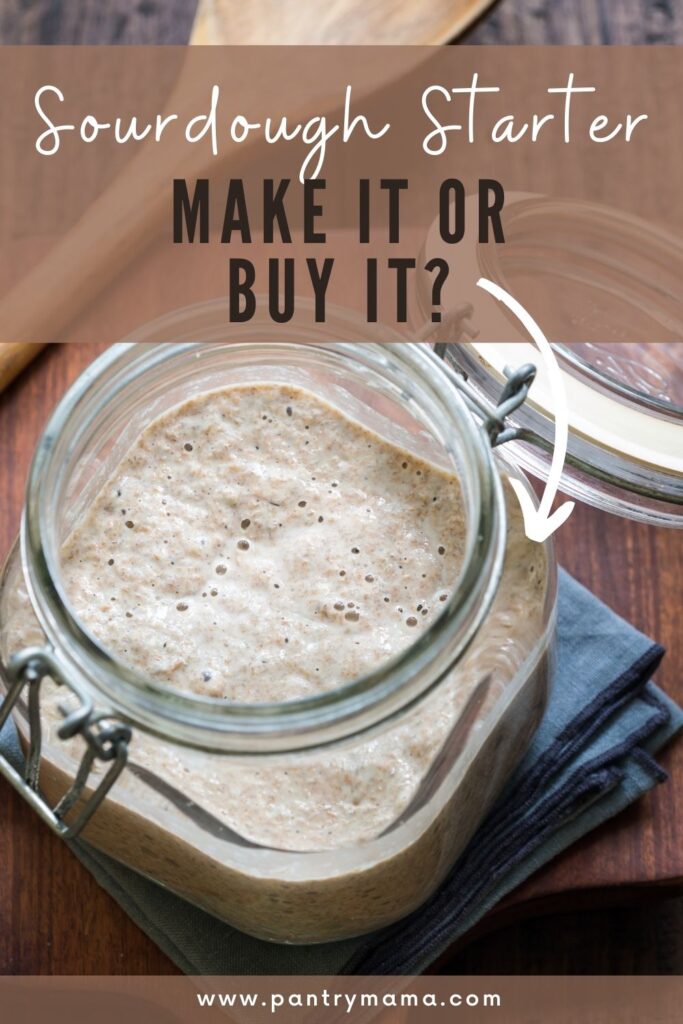
Want More Info?
If you would like more info on whether it's better to make a sourdough starter or buy one, then you may be interested in these articles:
- Easy Instructions for Making a Sourdough Starter From Scratch
- How Time Consuming is Sourdough?
- Best Tips for Giving Sourdough Starter A Boost
- Understand When Your Starter Is Ready To Bake Bread



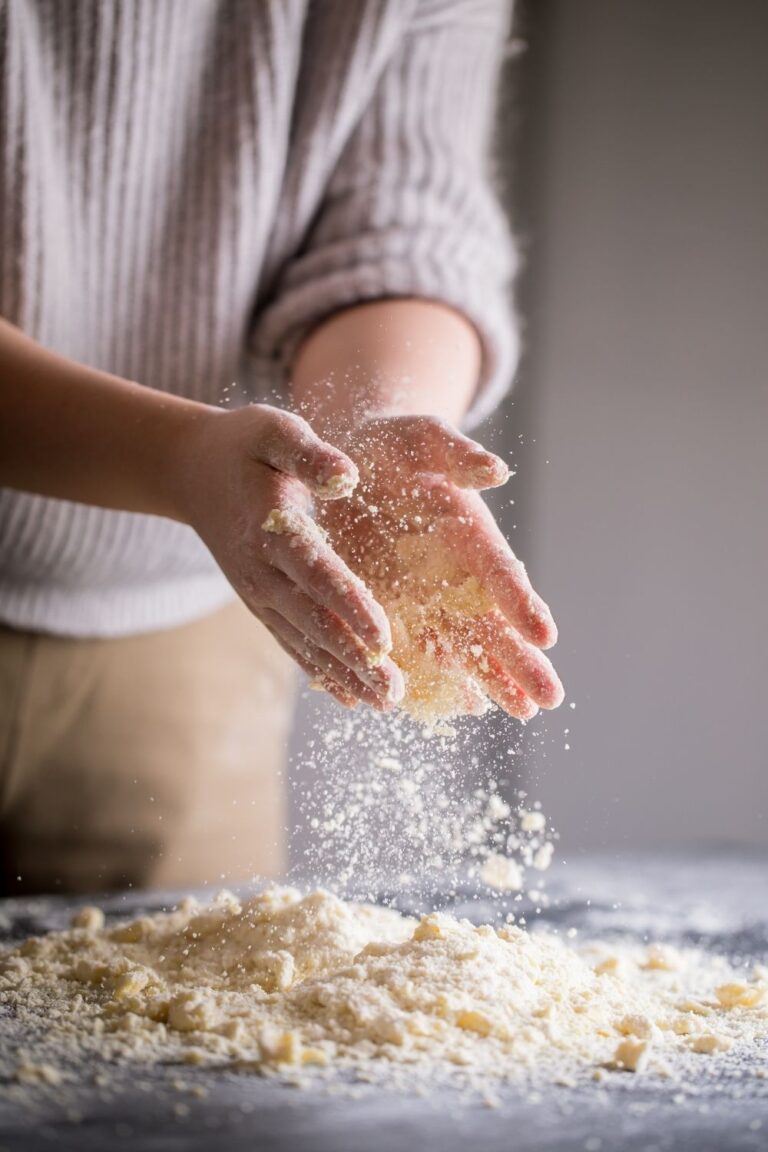
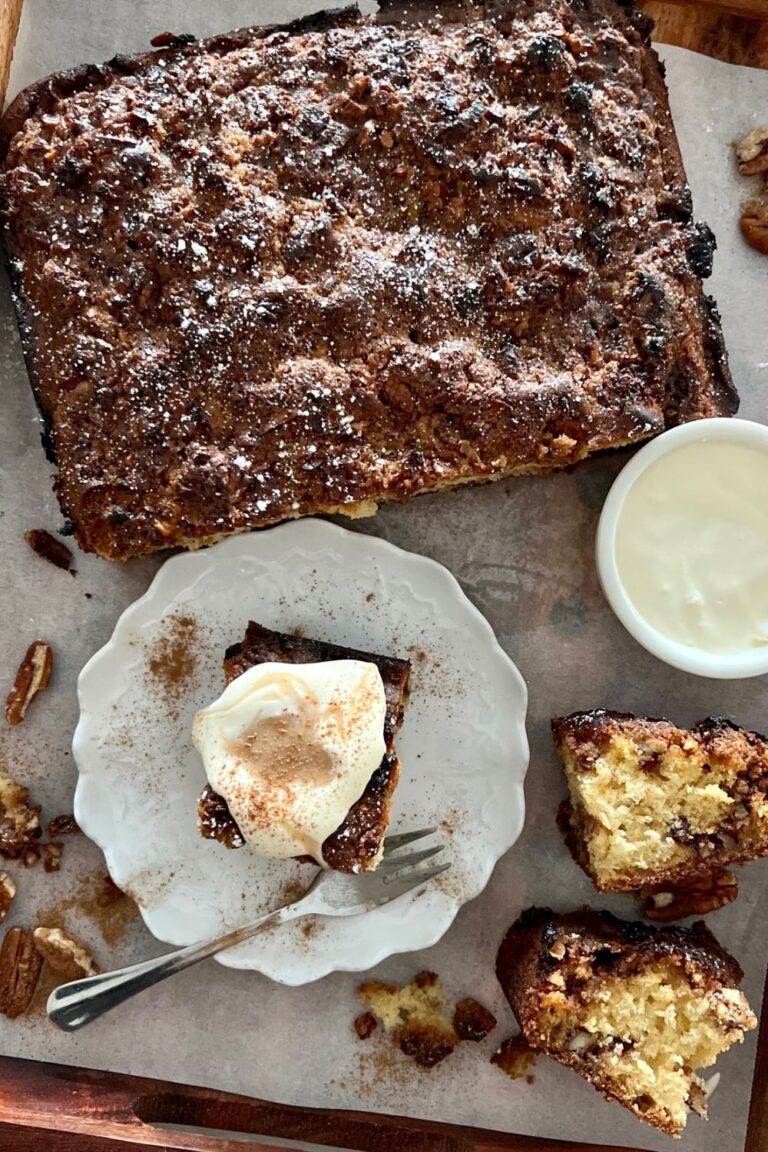
![Moldy Sourdough Starter [with photos of bad sourdough starter]](https://www.pantrymama.com/wp-content/uploads/2021/09/MOLDY-SOURDOUGH-STARTER-4-768x1152.jpg)
